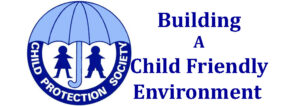Studies of skill formation have shown that interventions in the early childhood years are one of the rare examples of interventions that are both equitable and efficient thus , the interventions reduce inequalities whilst also raising the productivity of the society as a whole. The early childhood stimulation interventions on the child encourages parent-child interaction, parenting knowledge, and good development in children. The content of the ECS parenting sessions has been adopted from Care for Child Development (CCD) and the Parenting Club Curriculum used in Zimbabwe. CCD is an evidence based set of materials developed by UNICEF and the world Health Organisation. It provide guidance for caregivers with caregivers with children from the new born period on how stimulate them through play and communication. It encourages and supports sensitive and responsive interactions between caregivers and child including during feeding.Early Childhood Stimulation is the interaction between young children and their caregivers, providing children with the opportunity to learn about their environment from the earliest age. In practice, stimulation is about parents and other caregivers being responsive to the emotional and physical needs of their children from birth onward, playing and talking with them (even before children can respond verbally)and exposing them to words, numbers and simple concepts while engaging in daily routines. If children are to access quality stimulation services all the gaps in the development of a child in all aspects will be dealt with. “
